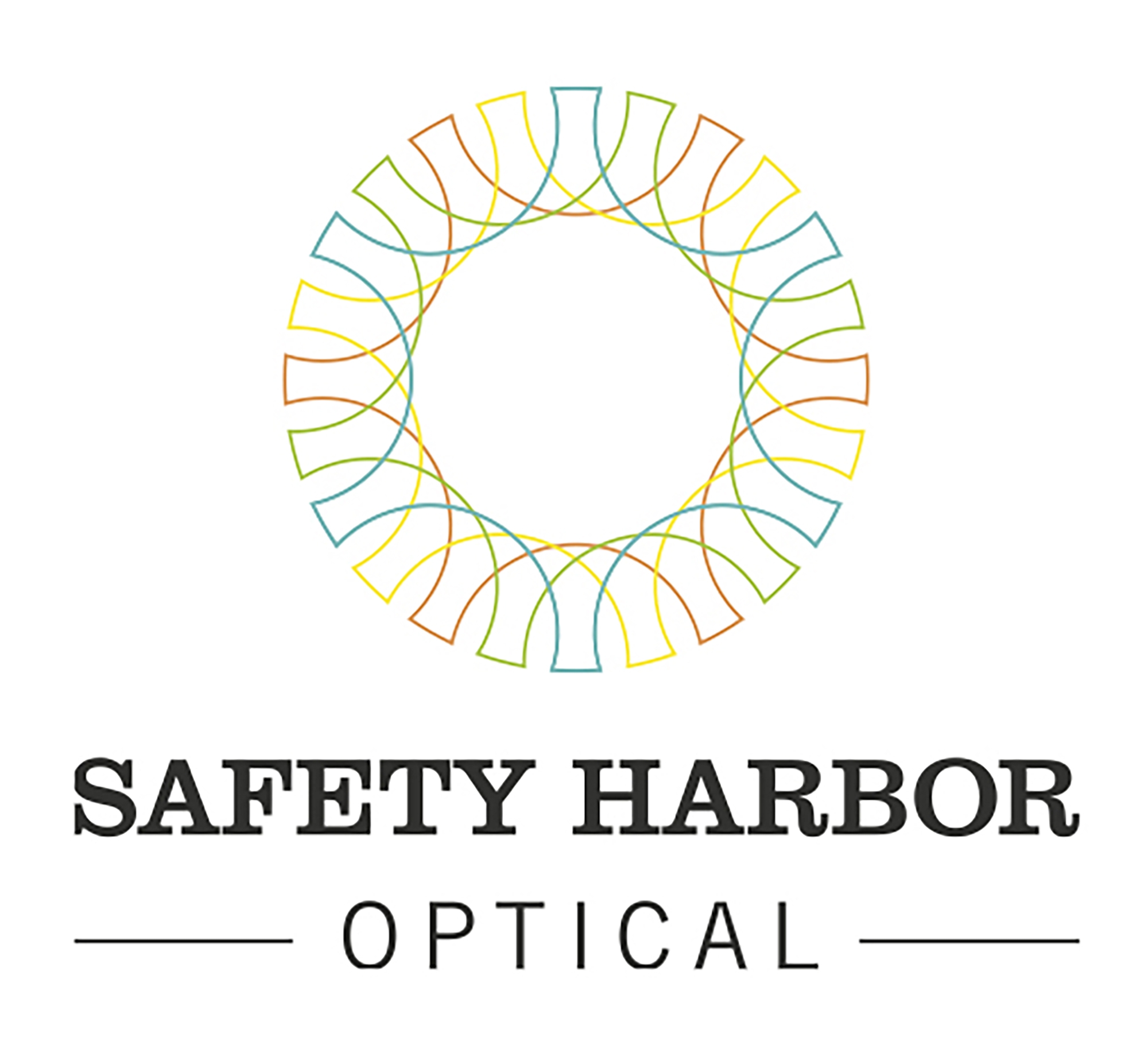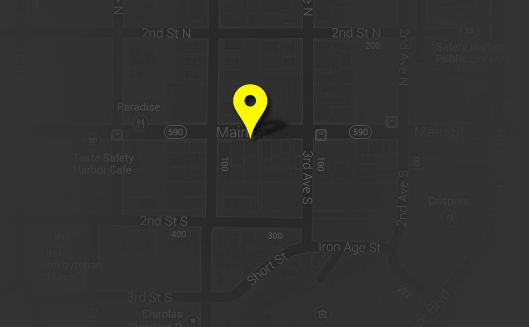Q&A
Frequently Asked Questions from Safety Harbor Optical patients.
Cataract Surgery
Comprehensive Eye Examinations
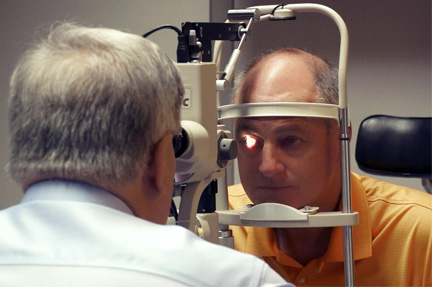
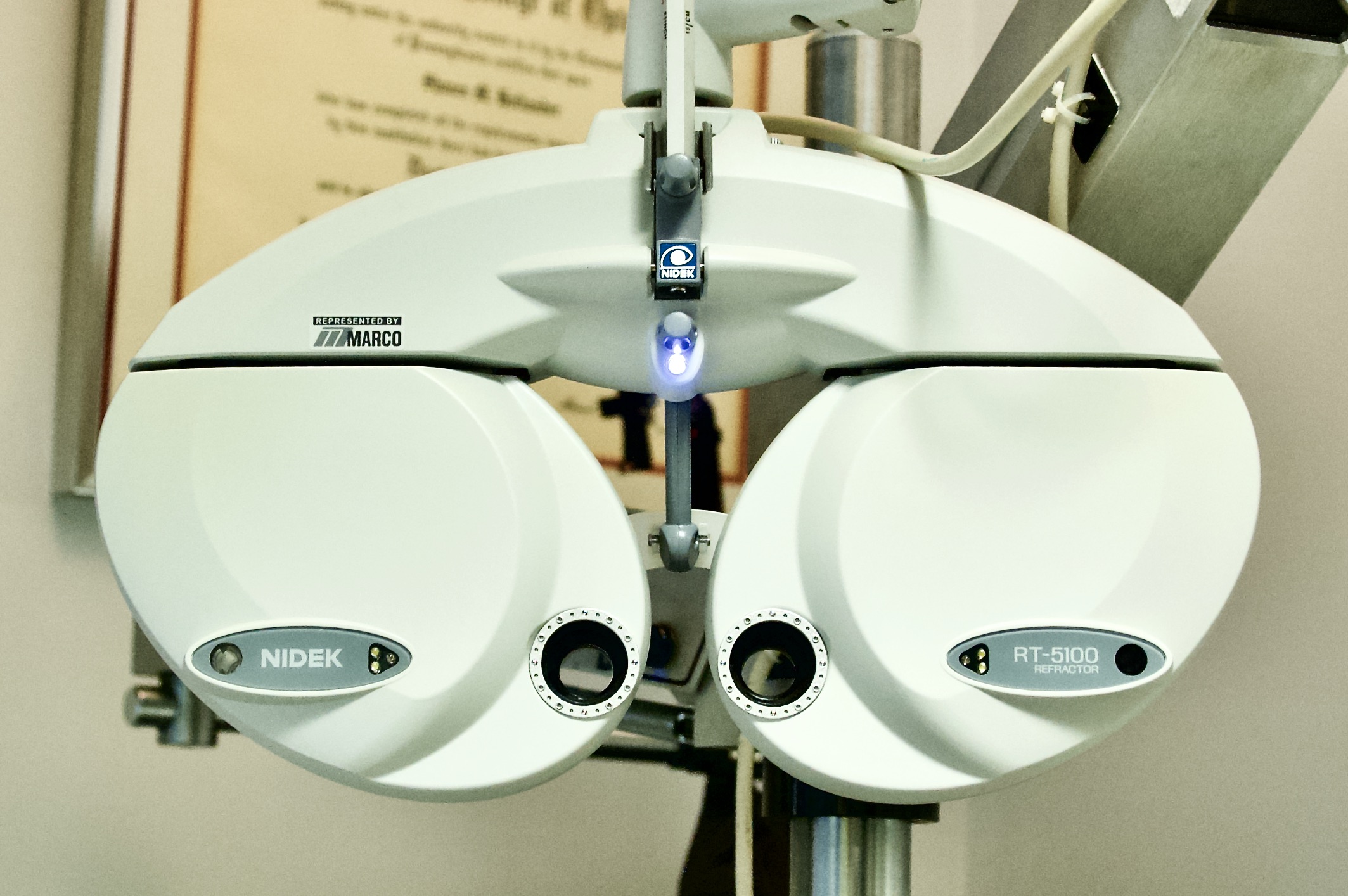
Q: How do I know when it is time to have my cataract operated on?
A: This is a great question and one that has no right or wrong answer. It often depends on how well you tolerate blur and your visual requirements, as this differs widely among individuals. Some will choose to have an early cataract removed, while others are largely unaffected by a more moderate degree of cataract. Many of our patients have heard that a cataract has to be ‘ripe’ before it can be removed. This is incorrect. In fact, many cataract procedures are performed each year on eyes without any visible sign of cataract. This surgery is performed in order to correct the vision of patients whose prescriptions are outside the range of LASIK surgeries. Today, cataract surgery has one of the most successful outcomes of any procedure. Not only can the cataract, which is interfering with vision, be removed but also through the use of custom implantable intraocular lenses, the widest range of prescriptions can be corrected. This includes those needing high astigmatism corrections and also those wanting bifocal or progressive lens corrections. Without a bifocal cataract procedure, reading glasses are often needed in order to see clearly up close after surgery. A comprehensive exam is needed to determine if a cataract is present and to diagnose what type of cataract is forming, which can then be monitored as to when it might be best to consider having cataract surgery. When cataract surgery is required, we are able to provide the pre- and post-operative visits to care for our cataract patients.
Q: I cannot remember the last time I got an eye exam. Why should I get my eyes examined? I can see fine while driving and I can read my smartphone with my over-the-counter reading glasses.
A: Many eye diseases and conditions can only be detected through a comprehensive eye examination. For example, most people cannot know that they have, or are at risk for glaucoma until vision loss occurs. Other treatable conditions, if caught early, can prevent vision loss, such as macular degeneration and diabetic retinopathy. At Safety Harbor Optical, we provide complete eye care for adults and children. We always schedule ample time so you will never feel rushed. Our comprehensive eye exams check for glaucoma, cataracts, and other eye diseases along with high blood pressure, diabetes and other systemic diseases. Your visual skills and abilities are carefully evaluated; we pride ourselves on the accuracy of our eyeglass prescriptions. Technology is rapidly changing the eye care industry. Safety Harbor Optical is proud to utilize the latest in diagnostic equipment and is committed to staying current on all optometric technology and advances. We recommend yearly wellness eye examinations. If you are having an eye problem, please call our office immediately.
Contact Lenses
Diabetic Patients
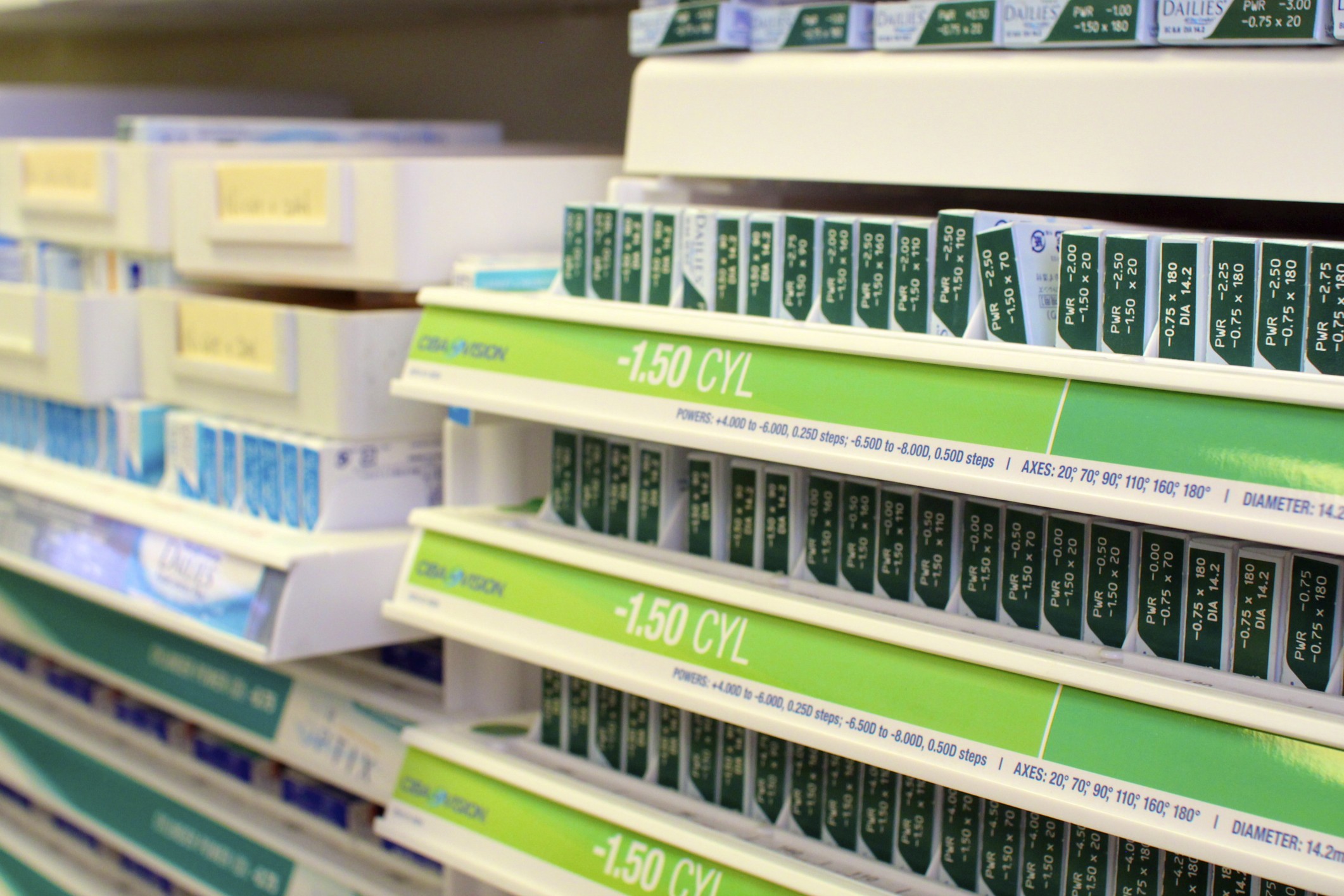

Q: What is new in the field of contact lenses today?
A: The contact lens industry is ever-evolving with innovative ideas, which ultimately benefits our patients at Safety Harbor Optical. For soft lenses, the new generation of silicone hydrogel material enables unprecedented comfort and oxygen permeability. This technology is available in every wear schedule, including the increasingly popular daily disposable schedule. Research and development in the rigid gas permeable lens industry has been equally as dynamic, resulting in improved material advances both in terms of performance and wearability. Fortunately, both types of contact lenses are available to address the needs of virtually every Safety Harbor Optical patient—those with astigmatism, presbyopia, and/or dry eye condition. Another application where we use hydrophilic contacts is to administer time-released drug delivery to a compromised cornea to ensure rapid healing without discomfort.
Q: Why do Safety Harbor Optical diabetic patients need to have an annual dilated exam?
A: Early detection of diabetic retinopathy is critical, and is facilitated by pupillary dilation, as well as with our wide-field imaging scanning laser ophthalmoscope, the Optomap Daytona. Photo documentation with our digital imaging device is essential in tracking retinal changes over time in those who have diabetic retinopathy or any number of retinal diseases and disorders. At Safety Harbor Optical, we are able to sequentially compare the high-resolution photographs over time to monitor even the smallest retinal changes, and communicating the information to our patient’s primary physician. With diabetic retinopathy now considered to be one of the leading causes of vision impairment, annual comprehensive eye examinations are now the accepted standard of care for all diabetics.
Dry Eye Treatment
Importance of Nutrition
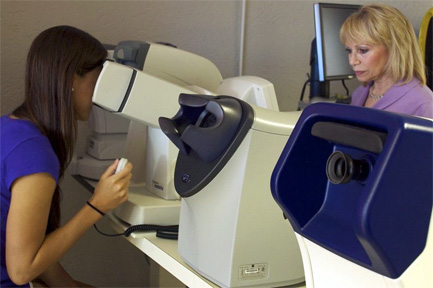
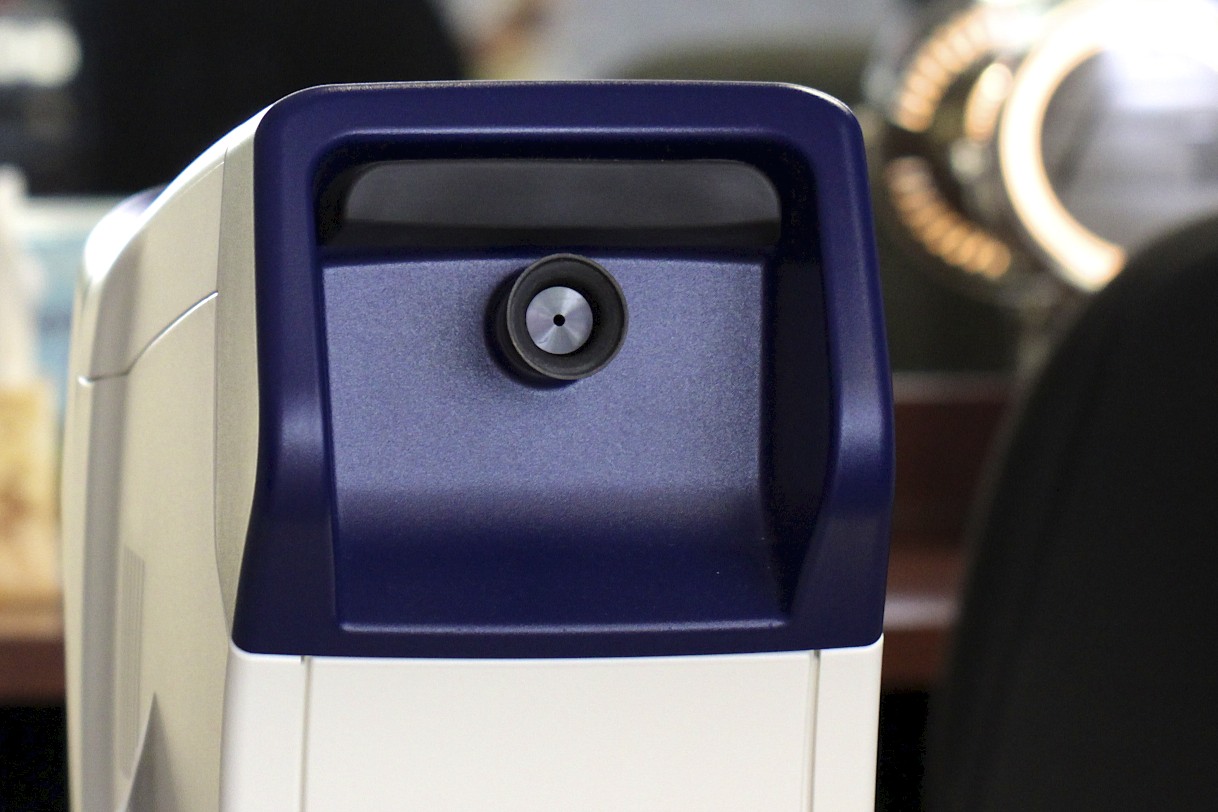
Q: Which eye drops are best for dry eye?
A: There is no single drop that works best in every case. Generally speaking though, dry eye drops that are available by prescription only, typically work better than over-the-counter drops. When selecting over-the-counter drops for dry eye, select preservative-free vs. preserved, and keep in mind that ointment is stronger than gel drops, which are stronger than regular drops. In order for over-the-counter drops to have a chance of working effectively, remember to use them regularly, sometimes as often as every hour or two. The main symptoms of dry eye are sandy, gritty eyes. Oral medications, reading, computer tasks and dry environments may aggravate marginally dry eyes. Sometimes, it is actually allergies that are mistaken for a dry eye. There are prescription drops that are very effective for both of these conditions. At Safety Harbor Optical, we see many cases each year and it is important to differentiate the cause of eye discomfort so that the correct treatment can be prescribed.
Q: What is the role of nutrition in the prevention of eye disease?
A: More than ever before, we are finding that nutrition plays a vital role in eye health and visual performance. There is a growing body of evidence linking diet to eye health and to the prevention of age-related vision disorders. It has been well established that the advancement of macular degeneration, for example, is significantly reduced with the use of various nutritional supplements such as beta-carotene, zinc, lutein, and vitamins C and E. It has also been found that dry eye condition has responded favorably to supplemental omega 3 with fish oil and vitamin E. There are many benefits, as well, to a diet consisting of fresh fruit, fish, vegetables, and nuts, promoting positive eye health as well as excellent health overall.
Keratoconus Treatment
LASIK Surgery

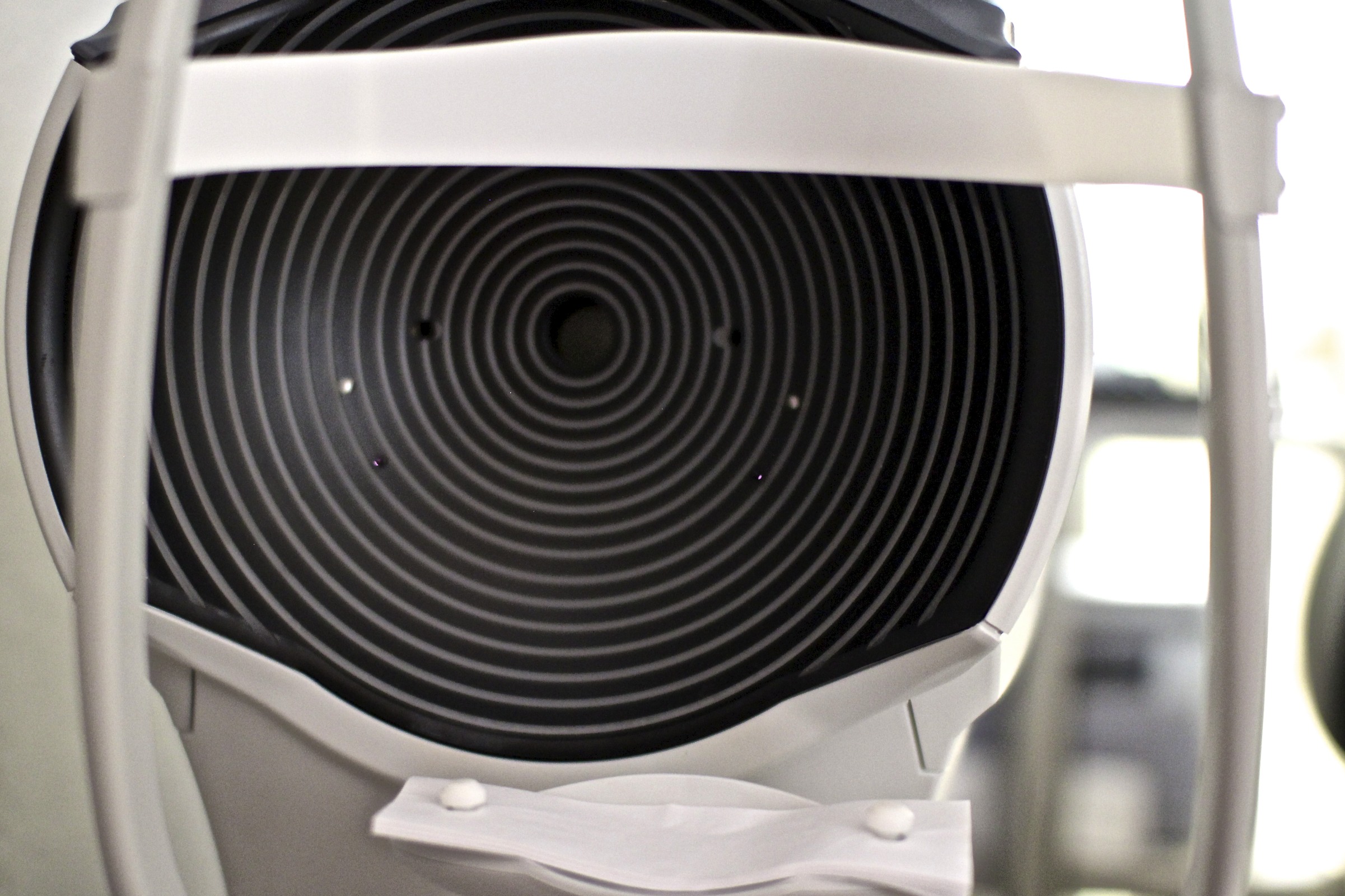
Q: Are there any new treatment options for Keratoconus?
A: Keratoconus is a condition affecting the cornea, the front dome-shaped structure on the front of the eye. The cornea bulges forward, becoming thinner, steeper, more nearsighted and may develop large and irregular amounts of astigmatism. Eyeglasses are not able to correct vision in these cases, and many contact lens designs are very uncomfortable. Some people suffering from keratoconus become contact lens intolerant, either due to dry eyes or possibly from discomfort associated with the steepening or scarring of the cornea. Recently, a new soft contact lens material has been developed so that keratoconus patients now have another, possibly more comfortable option to correct their vision problems. The NovaKone lens, a specially designed custom soft lens, helps to mask corneal distortion and irregular astigmatism. Although soft lenses have been used in the past for keratoconus patients, compromises in fit, vision, or wearing time had to be made. NovaKone soft lenses for keratoconus are indicated for visual correction for patients with all stages of keratoconus, and can be particularly successful to address cases where other types of contact lenses have failed. What makes this contact lens unique and more successful is the central and peripheral may be changed independently of each other to improve the fit of the lens. With the NovaKone lens, the tear exchange underneath the lens provides good oxygen flow, all while maintaining the comfort of a soft lens.
Q: Am I a candidate for LASIK surgery?
A: Today, the menu of options for vision correction includes glasses, contacts, and refractive surgery. Although there are various types of refractive surgery, LASIK (Laser-Assisted In Situ Keratomileusis) is the most popular. LASIK is a popular eye surgery that can treat nearsightedness, farsightedness and astigmatism. A majority of our patients are choosing to have a procedure called Custom Bladeless LASIK. Elimination of a blade removes human error, improves accuracy, and corrects aberrations within the eye. The result is less glare, haloes, and shadows postoperatively, especially with night vision. During a routine eye exam at Safety Harbor Optical, we can determine if you are an excellent LASIK candidate. There are many factors that go into a recommendation of LASIK surgery including age, prescription history, eye health, corneal shape and thickness. Not every patient who wishes to have LASIK surgery is the right candidate. In fact, we probably turn down more cases than we accept. We are not procedure driven; rather, we are outcome-oriented. This insures that we continue an outstanding track record of successful outcomes. Our patients who have had LASIK surgery have thanked us for the recommendation. Please call our office today to schedule your eye examination and LASIK evaluation; you will learn if LASIK is your right choice.
Medically Necessary Contact Lenses
Optical Dispensing
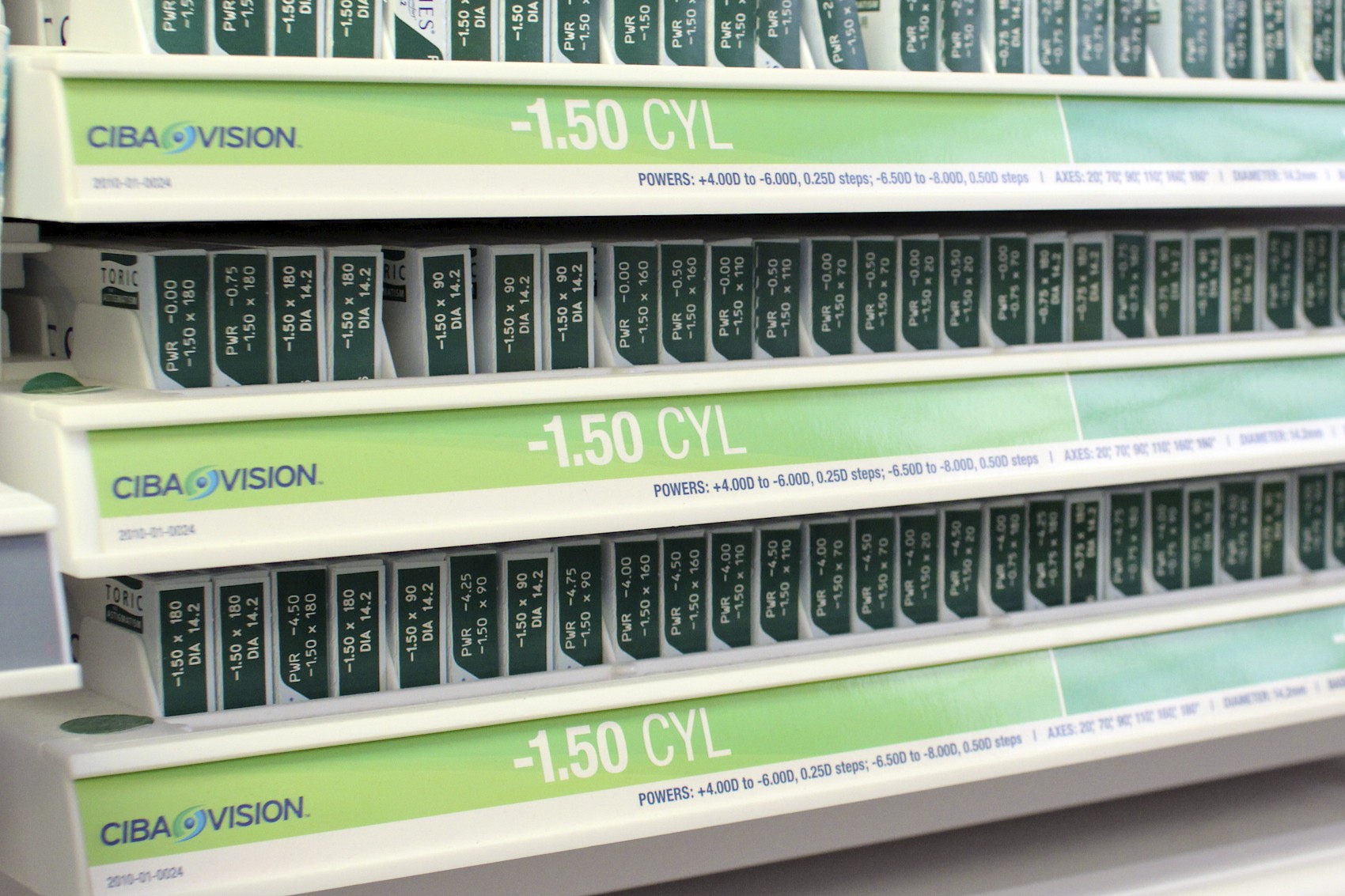
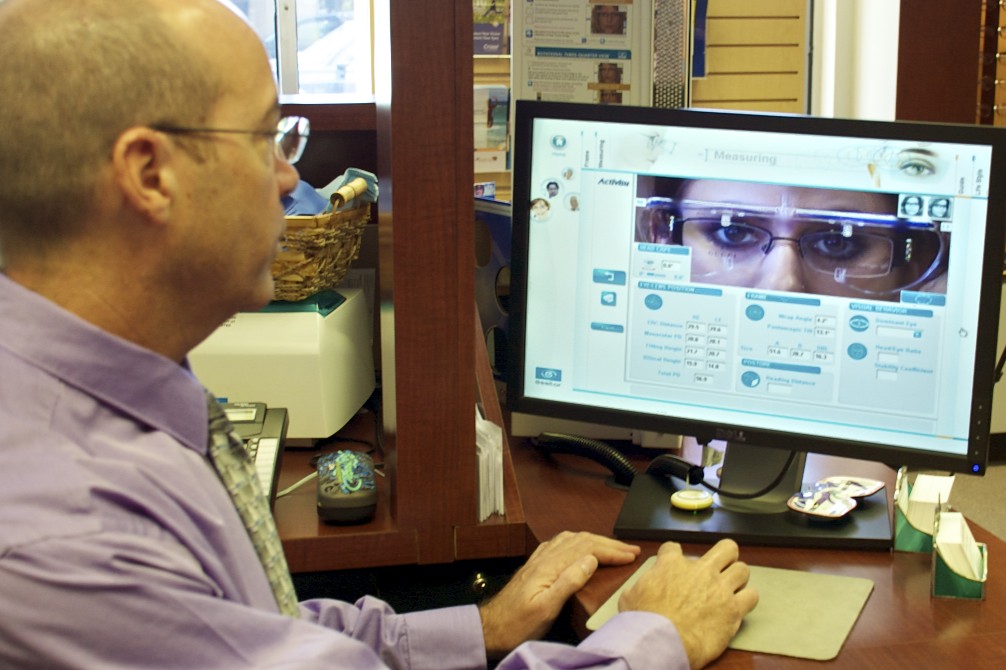
Q: What are Medically Necessary Contact Lenses?
A: Many of us think that individuals who don’t want to wear glasses wear contact lenses. However, some people have to wear contact lenses because glasses are unable to correct their vision well enough to be functional. This could be due to an irregular pupil from trauma or surgery, or a corneal disease such as keratoconus. In these cases, where the cornea is irregular, scarred, or distorted, and contact lenses become the only non-surgical correction, contacts are medically necessary. There have been tremendous advancements in medically necessary contact lenses. At Safety Harbor Optical, we utilize the latest technology and fit reverse geometry lenses, scleral contact lenses, and the latest hybrid lenses.
Q: What special technologies does Safety Harbor Optical provide when I order a pair of prescription glasses?
A: Selecting the perfect fitting frame and style is made easy at Safety Harbor Optical, thanks in large part to our experienced licensed opticians who help you choose the very latest in designer and fashion eyewear. Our patients often comment how our optical has one of the best selections of frames and just the right amount to choose from. We are in the forefront of lens technology, too, and have computer-assisted, high-tech fitting systems so that we can utilize the latest in lens design for your new prescription. We are able to digitally photograph and measure your lens and frame fit to accuracy, not previously imaginable. This, along with the experience of our opticians, is what enables us to achieve such a high first-time success rate even with the most complex prescriptions. At Safety Harbor Optical, we are able to provide you with the best warranty in the industry. Our trusted and valued patients know that we stand behind what we prescribe.
Oxygen Permeable Therapeutic Contact Lenses
Primary Eye Care
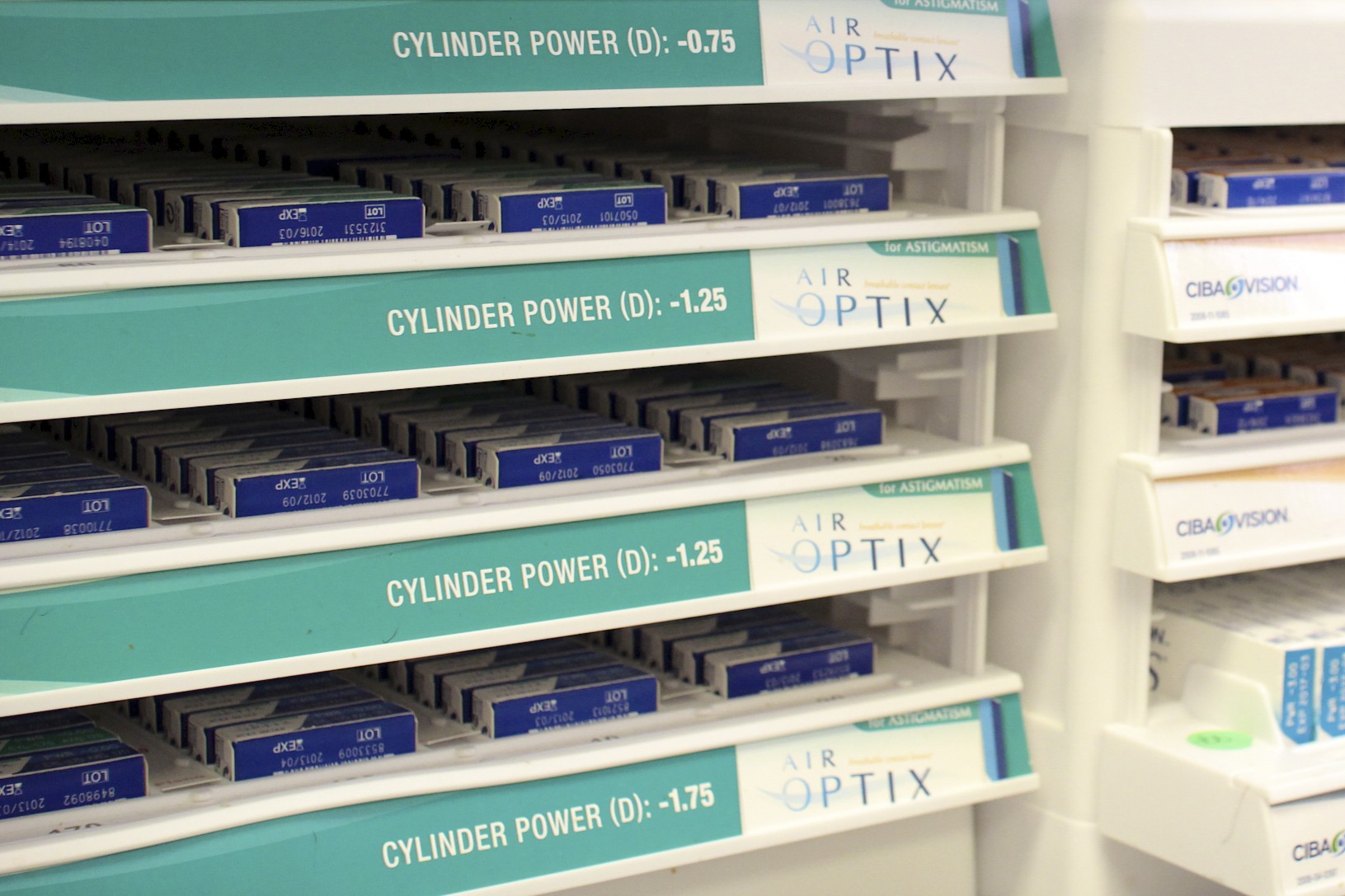
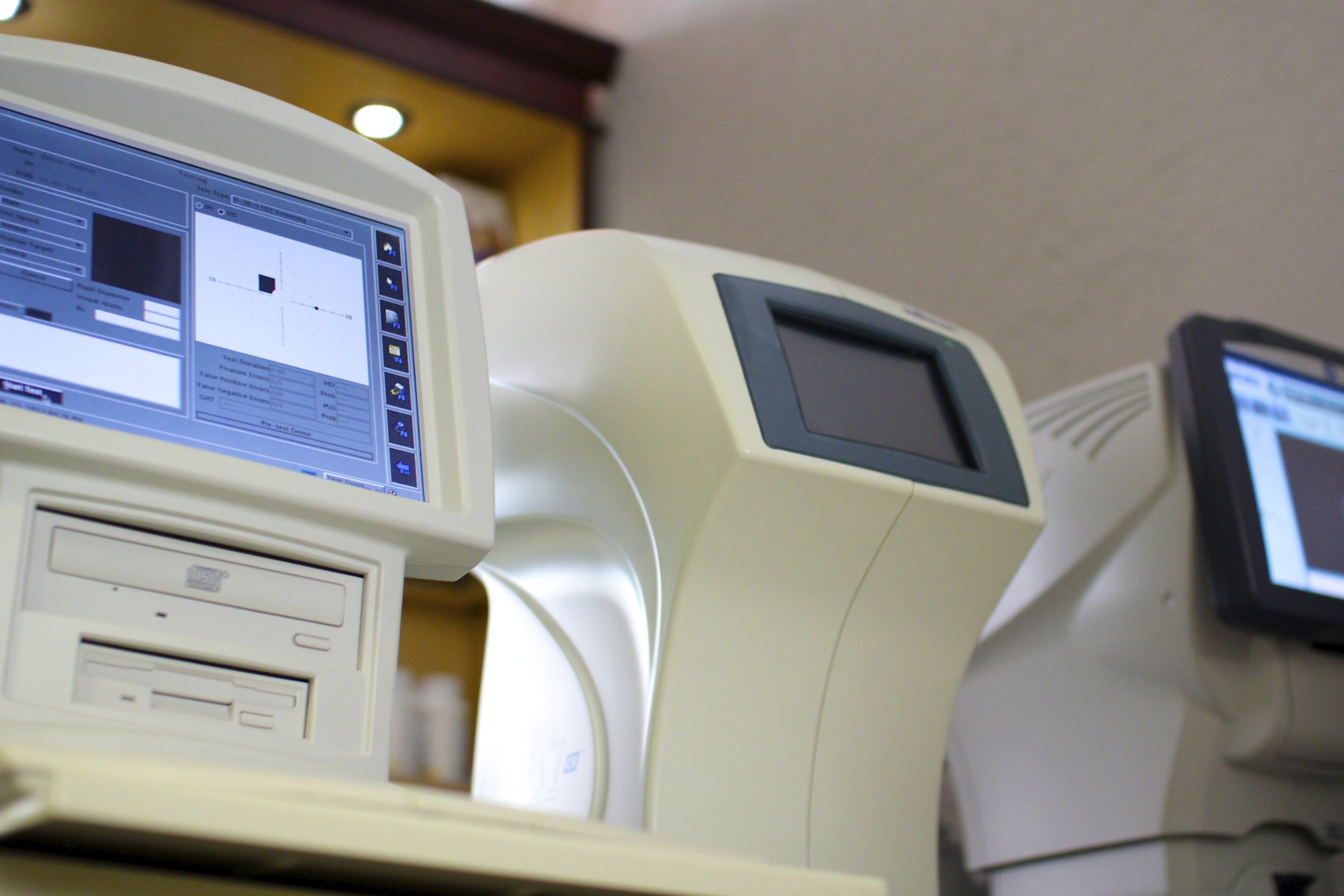
Q: What is Paragon CRT and how many diopters of myopia and astigmatism can be treated?
A: Paragon CRT is a unique oxygen permeable therapeutic contact lens designed to temporarily correct myopia (nearsightedness and moderate levels of astigmatism) by gently reshaping the cornea during sleep. Patients remove them in the morning and go throughout the day without any other correction. The FDA approved Paragon CRT for up to –6.00 diopters of myopia and up to –1.75 diopters of astigmatism. Generally, the easiest to fit cases are under –4.50 diopters, but myopes up to –6.00 diopters have experienced great success. Paragon CRT offers freedom from glasses and the hassle of wearing contact lenses during the day. This leading-edge technology can enhance the lifestyle for those requiring vision corrections. Active individuals can freely participate in sports without the interference of glasses or bothersome contacts. Eye irritation and dryness, sometimes associated with contact lens wear due to outside dust and pollutants, are also eliminated. At Safety Harbor Optical, we offer a free consultation to determine if you would be an ideal candidate for this exciting lens modality. Please call our office today to schedule your consultation.
Q: Suddenly, I started seeing flashes of light and what looked like many ‘hairs’ in front of me. Now I am having trouble seeing on one side. At first I thought my glasses needed cleaning or that something was in my eye. It has gotten somewhat better, but hasn’t gone away entirely. Who do I see for this? Do I go to the ER?
A: We suggest calling our office for an emergency visit to evaluate any sudden change in vision, especially one that results in flashes of light, or any vision loss. We are always able to see emergencies, even on our busiest days. The key differential diagnosis is to ensure you are not having a retinal detachment or retinal tear, which is impossible for us to determine without seeing you in person. Even though this could be a benign condition, it is best to have it checked out and rule out a treatable ocular emergency. Primary Eye Care means we are often the entry point into the health care system for everything involving eyes. Our job is to detect and diagnose conditions of the eye, and when necessary, make the appropriate referral to a subspecialist. We work with many different specialists within eye care, for example, cataract and glaucoma surgeons, cornea and retina surgeons, cosmetic and dermatologic subspecialists, refractive surgeons and neuro-ophthalmologists, to name a few.
